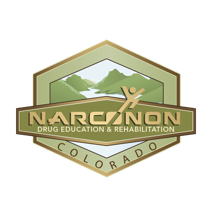10 Common Signs & Symptoms of Drug Abuse

Parents say it all the time—“I had no idea my kid was using drugs!” Sometimes it can be difficult to spot the changes that occur when substance abuse is taking place. It is important for every parent to educate themselves about the red flags of drug use. One of the most dangerous mistakes parents can make is telling themselves that their child would never do drugs. While we all certainly hope that this would be true, it can very easily happen to anyone.
Below are some of the more common signs that someone you love may have a problem with drugs or alcohol.
1. Habitual lying.
The nature of addiction causes people to become secretive and lie. No one wants to admit to their parents that they are using illicit drugs. Because of this, many people with an addiction will begin to lie about their whereabouts, how they spent their time or where their money is going. This is done to maintain a façade of normalcy in order to prevent prying. If you notice that a loved one is becoming secretive or deceitful, then there is a good chance they are hiding something from you.
2. Drastic changes in weight.
Drug and alcohol abuse can lead to extreme weight fluctuations. Many drugs like heroin and methamphetamine will suppress a person’s appetite. If your loved one has lost a considerable amount of weight without really exercising or having another valid reason, this is a definite red flag that there is something unhealthy going on.
3. Extreme fatigue or laziness.
Depressants will make a person extremely lethargic, sometimes to the point where they are barely able to keep their eyes open. A common symptom of opioid abuse is “nodding off” (essentially being so tired they can barely stay awake) in unusual places at unusual times. On the other hand, stimulants such as methamphetamine use can keep someone up for days on end while it is being used and then cause a person to crash after coming down. It is not uncommon for someone who is coming off a meth binge to sleep for days on end.
4. Dramatic changes in personality.
Drugs change how people think and act. Because of this, someone who is normally easy going and friendly can become irritable and short-tempered while under the influence or experiencing withdrawal. If someone appears extremely agitated, unable to sit still and becomes snappy for no apparent reason there is a good chance something is going on to cause this.

5. Loss of interest in friends or hobbies.
If a person suddenly stops doing the things that they love or stops spending time with their usual friends it would be wise to look into the reason behind this. If there is a legitimate reason behind the change the person should be able to let you know.
6. Continually asking for money or pawning possessions.
When someone is asking for more and more money, stealing or pawning off their possessions, there is a good chance they are doing so to feed an addiction. If you suspect that someone may be using drugs it is important not to give them money because it will be enabling their addiction.
7. Possessing drug paraphernalia.
Finding a pipe, hypodermic needle, blackened tin foil or other forms of drug paraphernalia is one of the most telling signs of drug abuse. Sometimes people will lie and say that the paraphernalia isn’t theirs and belongs to a friend, but the likelihood of this being true is small. Even if by some chance it were true, the odds of your loved one using drugs increase substantially when they are hanging out with other people who already do.
8. Excessive amounts of scabs or unusual bruises.
Meth abuse can cause a person to pick at their skin to the point of getting scabs all over their body. Track marks, bruises or puncture marks along veins are telltale signs of IV drug use. If a person often wears long sleeves, even in hot weather, this is a potential sign that they are hiding evidence of shooting up. When someone is continually getting hurt and can’t recall how it happened there is a chance they were while having a blackout while under the influence of drugs or alcohol.
9. Neglected hygiene.
Chronic drug use often leads to a lack of personal hygiene and self-care. When someone is not taking care of their physical appearance by showering regularly, brushing their teeth, cleaning their clothes, etc. there is a good chance it is due to an addiction.
10. Problems with work, school or run-ins with the law.
The longer a substance abuse problem lasts, the more a person will experience negative consequences. If a person was once doing well at school and then suddenly drops out or is continually getting fired from their job, then substance abuse may be playing a role in their downward spiral. Another symptom of drug abuse is having continual legal problems. Stealing, DUIs, possession charges are all red flags to look out for.
The most important thing to remember is to trust your instinct. If something seems odd or you feel that something is going on, then it is worth looking into. It is better to confront someone about suspected drug use and be wrong than to not say anything at all and be right. One of the worst feelings a parent can have is to have something bad happen knowing that they didn’t say or do anything out of fear of upsetting someone.
If your loved one is displaying any of these symptoms, then the situation is worth investigating. The more signs that person is showing, the more severe the problem will be. It is always a good idea to reach out for help from a professional in order to receive guidance on what to do next.


